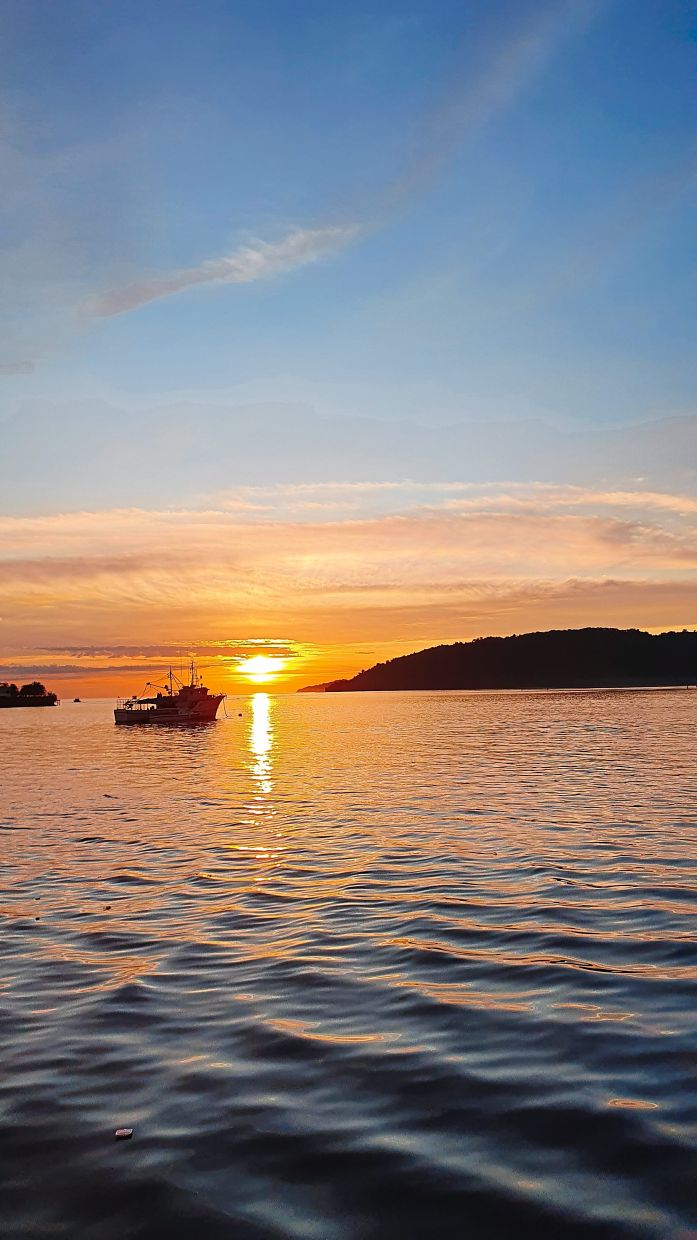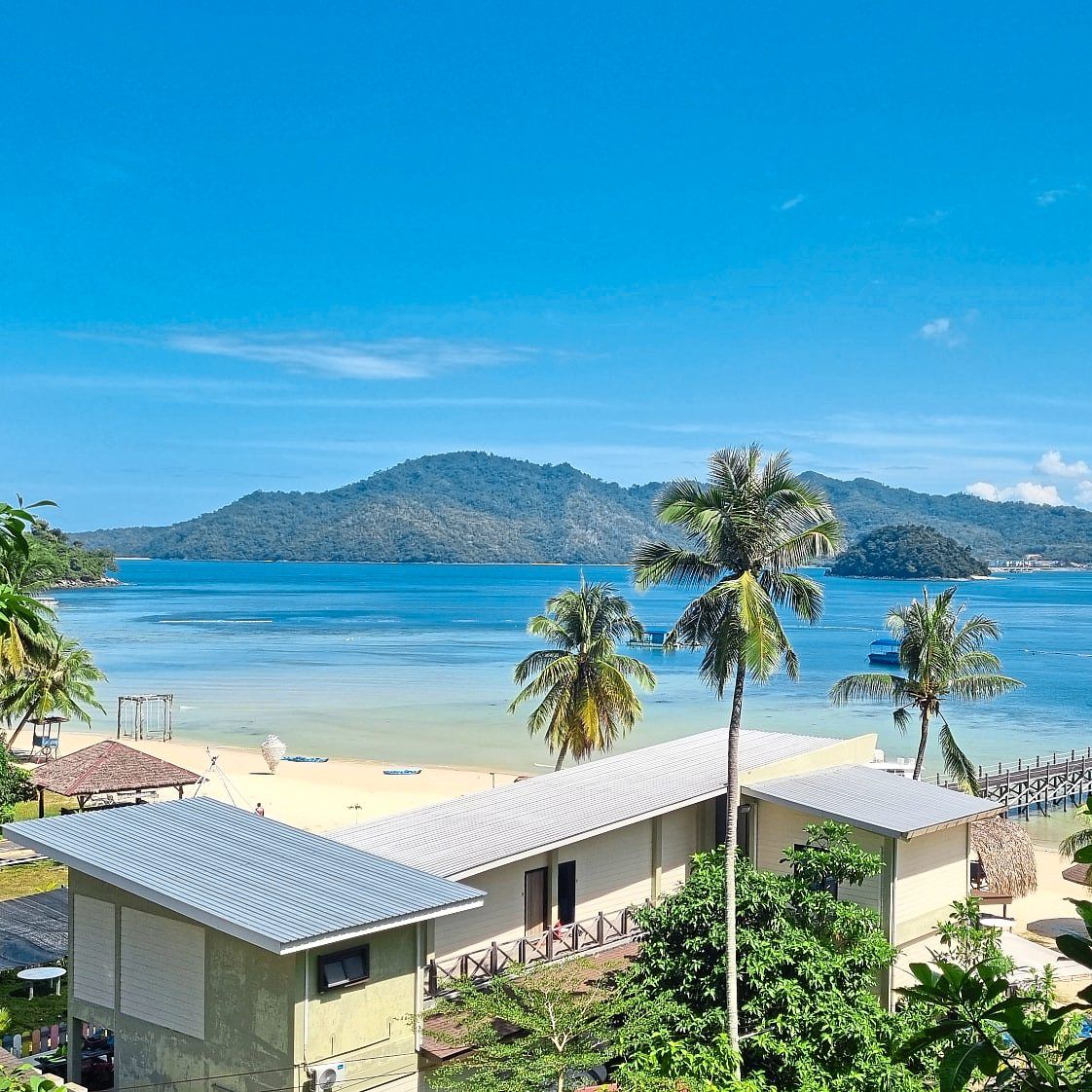The city of KK and its surrounding neighbourhoods have been spruced up in the past few years. — RACHEL YAPP
On March 2, Sabah welcomed its first direct flight from China since the Covid-19 pandemic. In a statement, the Sabah Tourism Board (STB) said that the AirAsia flight from Guangzhou arrived at the Kota Kinabalu International Airport at 5.30am, carrying 140 passengers.
“We are thrilled to have Chinese visitors back, and we hope our industry players will continue to provide exceptional hospitality services to
our guests,” said Sabah Tourism, Culture and Environment assistant minister and STB chairman Datuk Joniston Bangkuai in the statement, adding that China is a key and important market for Sabah.
On March 3, another flight from Shenzen arrived in KK.
The frequency of flights from and to Guangzhou is four times a week, while for Shenzen it is three times a week. In an email, Sabah Tourism, Culture and Environment Minister Datuk Christina Liew says, “We welcome AirAsia’s commitment in reinstating its flight services to the level of pre-Covid-19 (times), in support of the government’s relentless efforts to boost the tourism industry in Sabah in particular.”
Liew added that local tour operators have shared their plans with the ministry on ways to boost arrivals, including reviving regular flights from Xi’an (a first-tier city) and mounting chartered flights from second-tier cities in China, possibly by the middle of this year.
So far, South Korea had been the key contributor to the state’s visitor arrivals, thanks to the launch of three direct flights to KK from Seoul (via Air Busan, Jin Air and Jeju Air) in mid-2022.
Other cities with direct flight services into KK include Bandar Seri Begawan (Brunei), Taipei (Taiwan), Manila (the Philippines), Bangkok (Thailand), Hong Kong, Tokyo (Japan) and Singapore.
Apart from international flights, cruise tourism is also kicking off again in Sabah. Last month, the luxury cruise liner Seabourn Encore arrived and docked at the Sabah Port, bringing over 1,000 passengers including crewmen. This was the first cruise landing in Sabah for 2023; according to a report, STB is expecting eight cruise ships to dock in the state this year.
In the same report, STB chief executive officer Noredah Othman said, “The return of cruise tourism can help to promote Sabah as a tourist destination to a broader audience, allowing visitors on board to explore the city and nearby attractions. Cruise ships typically visit multiple destinations on a single itinerary, and the exposure that Sabah gets as part of this itinerary can encourage tourists to consider Sabah a standalone holiday destination.”
New and newer
KK city today certainly does look a lot livelier than it did around the same period two years ago, when Covid-19 infections were high and travel and movement restrictions were in full force.
Just take a walk around hotspots like Tanjung Aru beach, or head to any of the seafood restaurants and you can see lots of international tourists taking pictures or just enjoying a meal.
Domestic tourists from the peninsular are currently also out and about in KK, likely due to the school holidays.
Since last year, the city has prepared itself in several ways to receive an influx of tourist arrivals. For example, a lot more accommodation properties, ranging from 4-star to budget hotels have popped up, including Hyatt Centric Kota Kinabalu, Holiday Inn Express, The LUMA Hotel and ATAP Hotel.
The hospitality sector in KK also seems to have improved by leaps and bounds, at least based on recent reviews left on booking platforms and Google. This is great as customers (in this case, tourists) are more likely to return to a destination – or recommend the place to others – if they are treated well, and hotels are usually where they expect to get such treatment.
“The tourism scene is moving fast towards recovery. I have told tourism stakeholders (in Sabah) to improve their facilities and get ready to welcome tourists from overseas,” said Liew.
In recent years, KK has seen a mushrooming of cosy cafes, mid-scale restaurants and fine dining establishments too, many of which feature native ingredients and local produce on their innovative fusion menu. This then puts the state on the radar of a new generation of “food influencers”.
Some of the new establishments worth mentioning include Limau & Linen, a fusion restaurant with a beautiful interior; Oitom, a reservation-only fine dining place; Nook Cafe, which champions social entrepreneurship; Pixel Coffee & Bakes, a cafe that features performances by independent musicians; Hearth, a new restaurant serving Spanish-inspired dishes using local ingredients; and Makoto, another reservation-only Japanese restaurant specialising in omakase.
While Sabah is not particularly known for gastronomy tourism, the publicity it is now getting for some of these eateries is helping to change that. Who knows, perhaps the Michelin folks may even want to give KK’s F&B scene a try for its next guide.
Besides eateries, other attractions have also opened up in KK and other towns/districts nearby, especially places where folks can take beautiful pictures for their social media pages.
Tipsy Asi, for example, is located on a steep hill in the middle of a village, but this is one of the places one can go to for gorgeous sunset pictures (besides the beach, rooftop bars and hang out spots along the coastal highway, that is).
There’s also Dreamer’s Island Resort, a private island just 15 minutes via speed boat from the city port, Jesselton Point. Because of its close proximity to the city, the resort is popular with day-trippers who just want to spend a few hours snorkelling, diving or just relaxing on the beach.
This is also a pet-friendly island.
Stand-up paddleboarding may have been around for quite some time in Sabah, but of late, this watersport is gaining a lot of traction among locals and tourists.
Looking ahead
Sabah has set a target of welcoming 2.2 million international arrivals this year. A preliminary report on the STB website of the number of visitor arrivals to Sabah from January to December 2022 sees a 365.5% increase from 2021, which recorded a total of only 371,200 visitors.
For 2022, the total number of arrivals nearly hit the two million mark at 1,727,740. Out of that, 1,447,639 were domestic arrivals while 280,101 were international arrivals. Brunei made up the bulk of international arrivals with 76,700, with South Korea trailing not far behind at 55,200.
Singapore rounded up the top three list at 23,600 arrivals. Other notable internatiional arrivals were from China (6,500), Japan (4,400) and India (4,000).
As for tourism receipts, Sabah cashed in as much as RM3.18bil in 2022, which is a 433.3% increase from 2021’s receipts of RM0.6bil.
In 2019, when the global tourism industry was at a high, Sabah received RM9.02bil in tourism receipts. While Sabah (and Malaysia, in general) has a lot to catch up to, stakeholders and the government are positive of a steady recovery.
Liew herself said that she is upbeat about an “impending tourism boom in Sabah”. Her ministry and STB are working hard to promote the state in major markets like the United States, Australia, Japan and India.
Last weekend, Liew lead a Sabah delegation to the Internationale Tourismus-Borse Berlin or ITB Berlin 2023 in Germany, the world’s largest tourism trade fair, in hopes to “sell” the state to the world. The fair runs from March 7-9.
At ITB Berlin, STB launches its new destination rebranding, “Feel Sabah, North Borneo”. Sabah’s top inbound markets in Europe are from Germany, France, the Netherlands and Italy.
Also attending the ITB Berlin 2023 alongside the minister and representatives from STB are local tour companies Borneo Eco Tours, Borneo Nature Tours, Borneo Trails, Rustic Borneo, Sepilok Tropical Wildlife Adventure and Tabin Wildlife Reserve.










